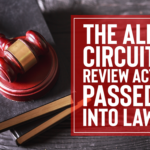On December 5, the SEC announced that it would be awarding a whistleblower that had brought it information $3.5 million for helping it resolve the case against a financial wrongdoer. In a way, this is huge news: the federal government is paying out enormous, life-changing sums to an ordinary citizen who made the decision to come forward with information that helped the agency do its job in keeping the financial markets fair. In another way, these kind of awards are becoming more and more common, and the SEC has handed out over $137 million in rewards to citizens, much of it being paid out in 2016 alone.
But, included within the “Order Determining Whistleblowing Claims” released by the SEC, there was perhaps even more interesting information relating to the case: there was in fact a second whistleblower who had brought information to the SEC related to the same wrongdoing (the SEC redacts information related to the specific facts of the matter to protect whistleblower confidentiality, although these details sometimes become known in the weeks after the announcement), and that second whistleblower was denied the receipt of any reward. Thus, one whistleblower received $3.5 million while another received nothing, which may seem unfair, but the order goes on to describe the different outcomes in ways that should be highly instructive for potential whistleblowers.
The Reasons Justifying the $3.5 Million Reward
In the order, the SEC says very little about why it decided to award the first whistleblower with $3.5 million, except to say that the award was “based exclusively on the award factors that are specified in Exchange Act Rule 21F-6, 17 C.F.R. § 240.21F-6.” That provision states that a whistleblower reward will be based on, among other things:
- The significance of the information provided by the whistleblower
- The degree of assistance provided by the whistleblower
- The SEC’s “law enforcement interest” in making the award, e.g. how the markets were affected by the wrongdoing and the deterrent effect in making the award
- The extent to which the whistleblower attempted to report the wrongdoing through other channels such as internal reporting
Notably, the statute also indicates that factors that might decrease a whistleblower reward are unreasonable delay, culpability, and attempts to interfere with reporting functions.
Why the Denial of a Second Reward Was Justified
With regard to the SEC’s decision not to reward the second whistleblower, the report indicated that, while the second tipster did provide information, none of that information was actually useful to the agency in reaching a conclusion in the action. The report did, again, not provide any specifics as to the facts provided by the claimant or the investigation, but the report suggests that the information provided was either not relevant to the investigation or had already been made available to investigators such that it was not useful to them.
In addition, the second claimant appears to have missed deadlines relating to his or her ability to claim an award and then complained to the SEC about not having been provided with more clear instructions on the procedures for claiming an award. While it is not clear whether the second claimant was aided by an experienced attorney, this is a perfect example of why it is important for a whistleblower to work with an experienced whistleblower attorney in bringing information to the federal government and seeking out compensation.
Get the Experienced Legal Guidance You Need in Bringing Your Whistleblower Info
Clearly, the SEC order demonstrates that there is a right way and a wrong way to bring whistleblowing info to the agency. At Kreindler & Associates, our practice is dedicated exclusively to protecting and helping whistleblowers who make the courageous decision to expose fraud and wrongdoing. We know the pitfalls and pathways to success and will do everything we can to guide you towards a successful outcome. To learn more about how Kreindler & Associates can help in your SEC whistleblower matter, see here.




